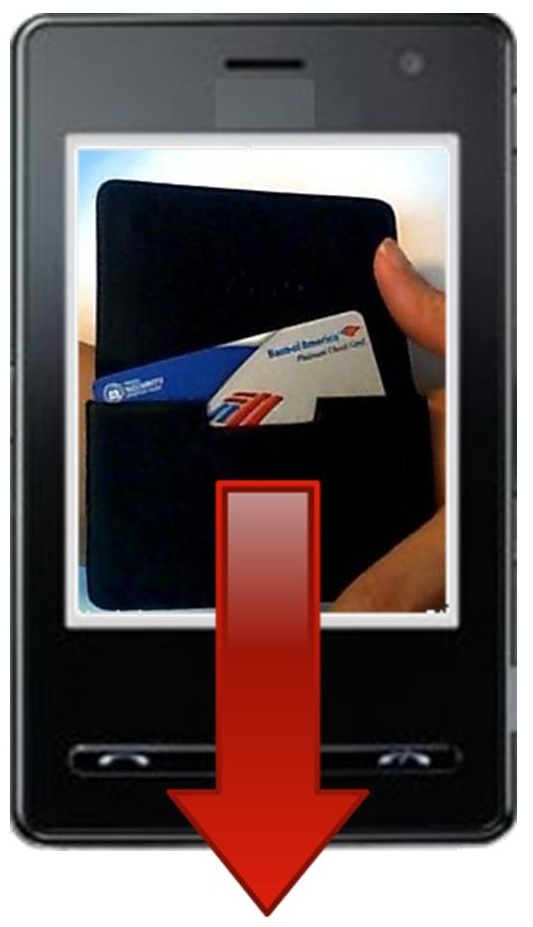 Strong results in mobile commerce and elsewhere still fail to meet expectations
Strong results in mobile commerce and elsewhere still fail to meet expectations
eBay has become one of the major supporters of mobile commerce in the retail world. The online retail giant has identified the mobile space as one of its most lucrative and promising markets. Over last year’s holiday season, eBay experienced strong growth in mobile sales due to the various mobile commerce initiatives it had launched to attract consumers. The momentum the company generated last year carried into the first quarter of 2013, where sales reached impressive heights, but ultimately failed to reach eBay’s lofty goals.
Earnings fall slightly short though mobile commerce grows more popular
Earnings and revenue grew throughout the first quarter as many consumers continued to swarm eBay’s primary e-commerce site and make use of its mobile commerce application. Sales were strong throughout the quarter, with eBay noting a spike in mobile transactions being processed by PayPal. PayPal has become an integral part of eBay’s mobile commerce efforts. The payment processor is now being accepted in several physical stores, allowing consumers to use their PayPal accounts to purchase goods from their mobile device.
PayPal shows strong growth
While earnings may have been slightly off estimates, eBay has high hopes for the rest of the year and beyond. The company expects its revenue to reach $23.5 billion by 2015, a 67% increase over the revenue it had generated in 2012. eBay’s European business performed more modestly than its U.S. counterpart, but still managed to show strong results. The company notes that PayPal’s revenue grew 18% by the end of the first quarter.
eBay expected to continue focus on mobile space
Mobile commerce is expected to continue playing a significant role in eBay’s future. The company anticipates that it will see its highest mobile sales come during the holiday season at the end of the year. Last year’s holiday season proved that mobile commerce has a strong allure to a broad spectrum of consumers and eBay is expected to continue refining its approach to this field.
 Mobile payments sector seeing a decline in wallet applications
Mobile payments sector seeing a decline in wallet applications
Mobile commerce is quickly becoming a major trend among consumers around the world. Many people consider mobile payments to be a simpler, more convenient way to pay for goods and services, partly due to the fact that mobile technology is so prolific. Much of mobile commerce has been powered through the use of mobile wallets, lightweight mobile applications meant to store and use financial information. While mobile commerce has been seeing strong growth over the past two years, these mobile wallets have not been growing more popular among consumers.
Wallets had been popular, but focus on NFC drives consumers away
In the advent of mobile payments, mobile wallets had been considered a necessary platform for mobile commerce as they provided much of the needed infrastructure for this form of commerce to work. Many of these applications are based on NFC technology, which allows for digital information to be transmitted over short distances. The problem, however, is that NFC technology is not universally supported throughout the mobile space. Indeed, the technology has been losing support from many of the companies and organizations that have emerged as strong players in the field of mobile payments, such as PayPal.
Consumers, as well as device makers, are favoring options free from NFC
Mobile wallets are beginning to give way to other applications that take a more accommodating approach to mobile payments. These applications seek to enable a wider range of consumers to participate in mobile commerce, which had, in the past, been largely restricted to those with NFC-enabled devices. These devices are still rare despite the efforts of companies invested in mobile commerce to see their expansion. A growing number of device manufacturers are beginning to abandon NFC technology, favoring mobile commerce platforms that offer some alternative.
Wallets may still be valid in mobile payments if an alternative to NFC is found
As device makers, like Apple, begin to move away from NFC technology, mobile wallets may be due for some change. These applications still receive significant support from Google and Isis, but the NFC-capabilities of these platforms make them unaccommodating to the growing interests of consumers. If organizations focused on mobile commerce want to retain the foothold they have established in this still emerging sector, they may soon have to consider finding an alternative to NFC technology.
 Strong results in mobile commerce and elsewhere still fail to meet expectations
Strong results in mobile commerce and elsewhere still fail to meet expectations
 Mobile payments sector seeing a decline in wallet applications
Mobile payments sector seeing a decline in wallet applications